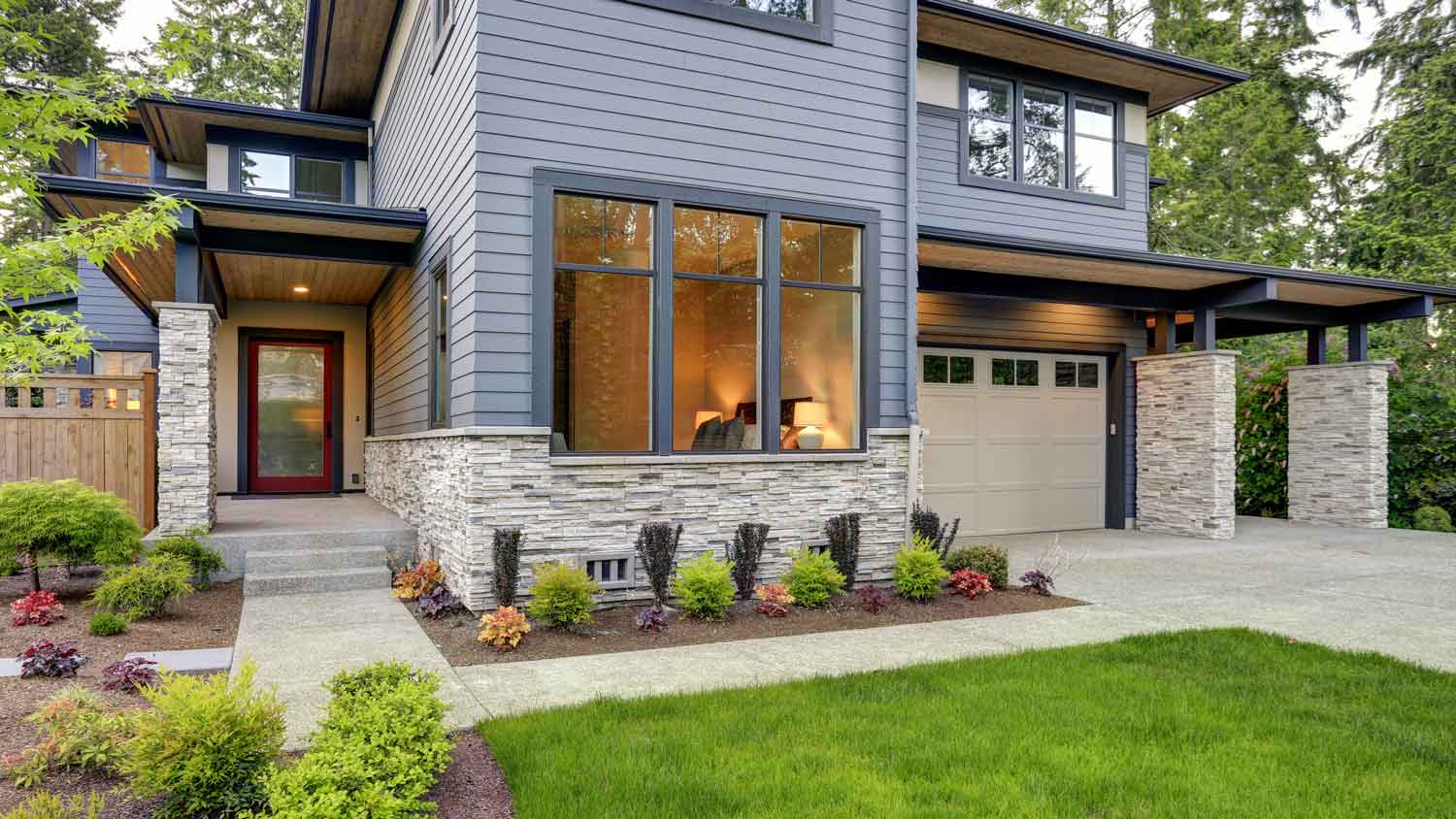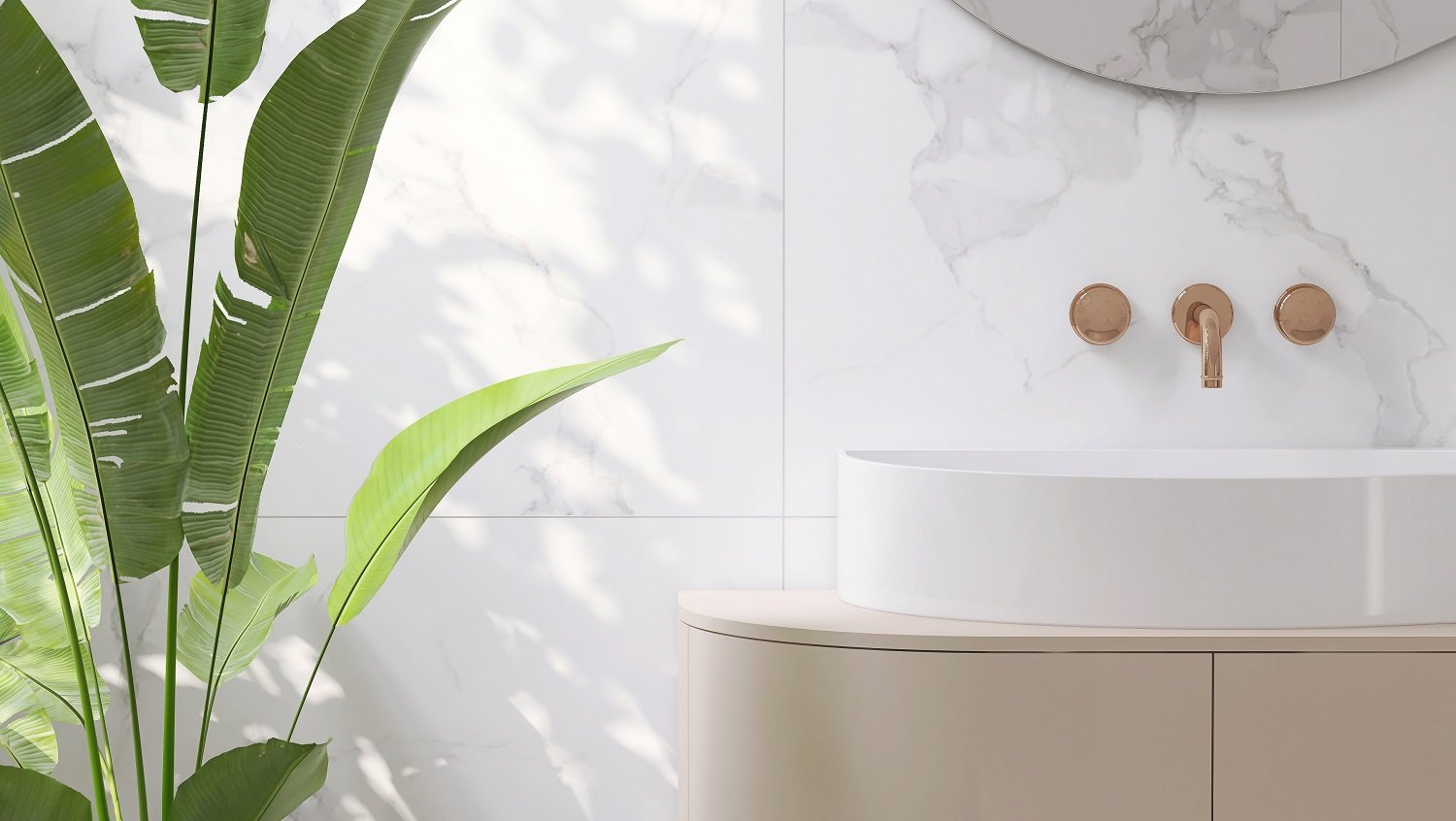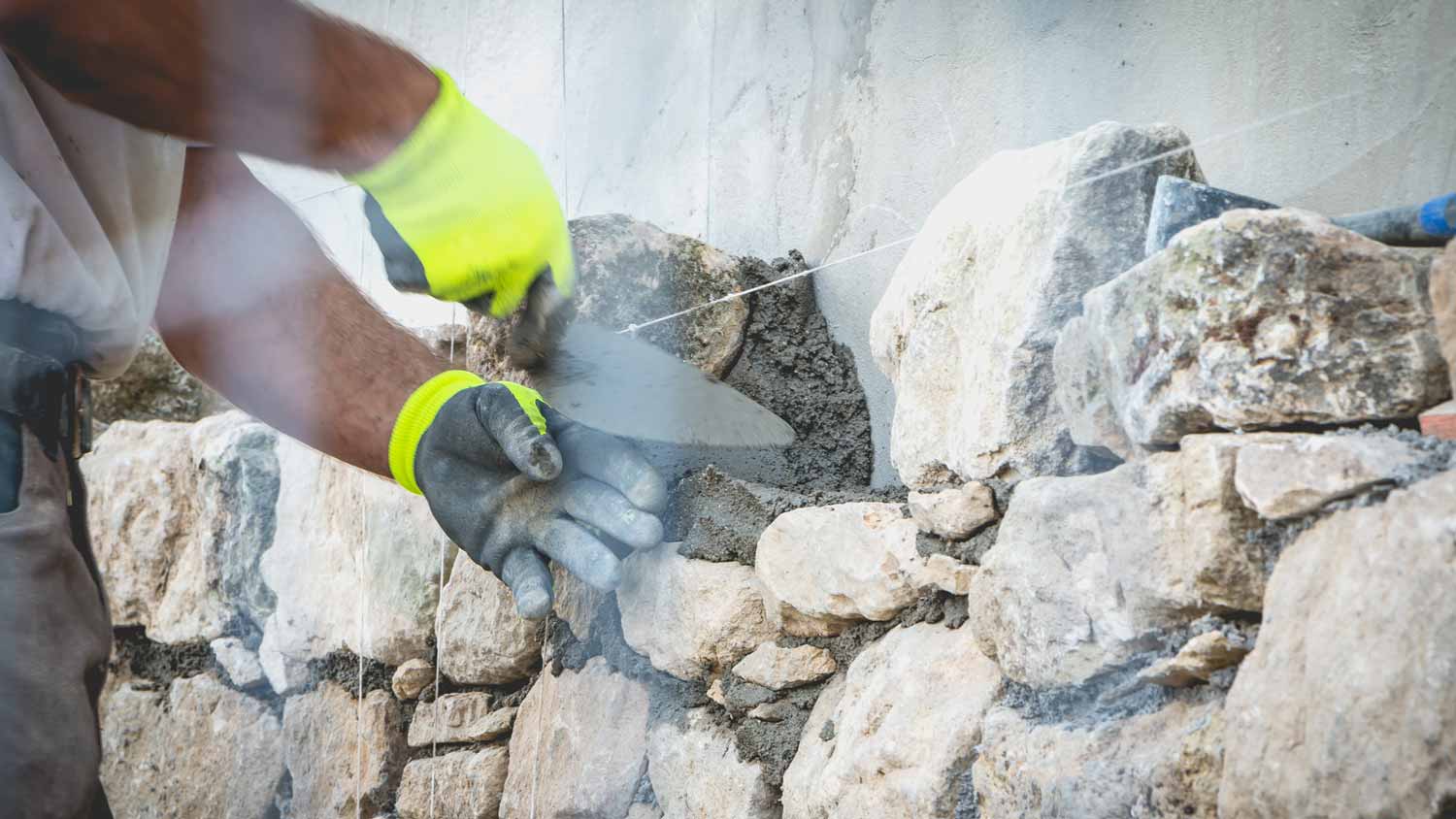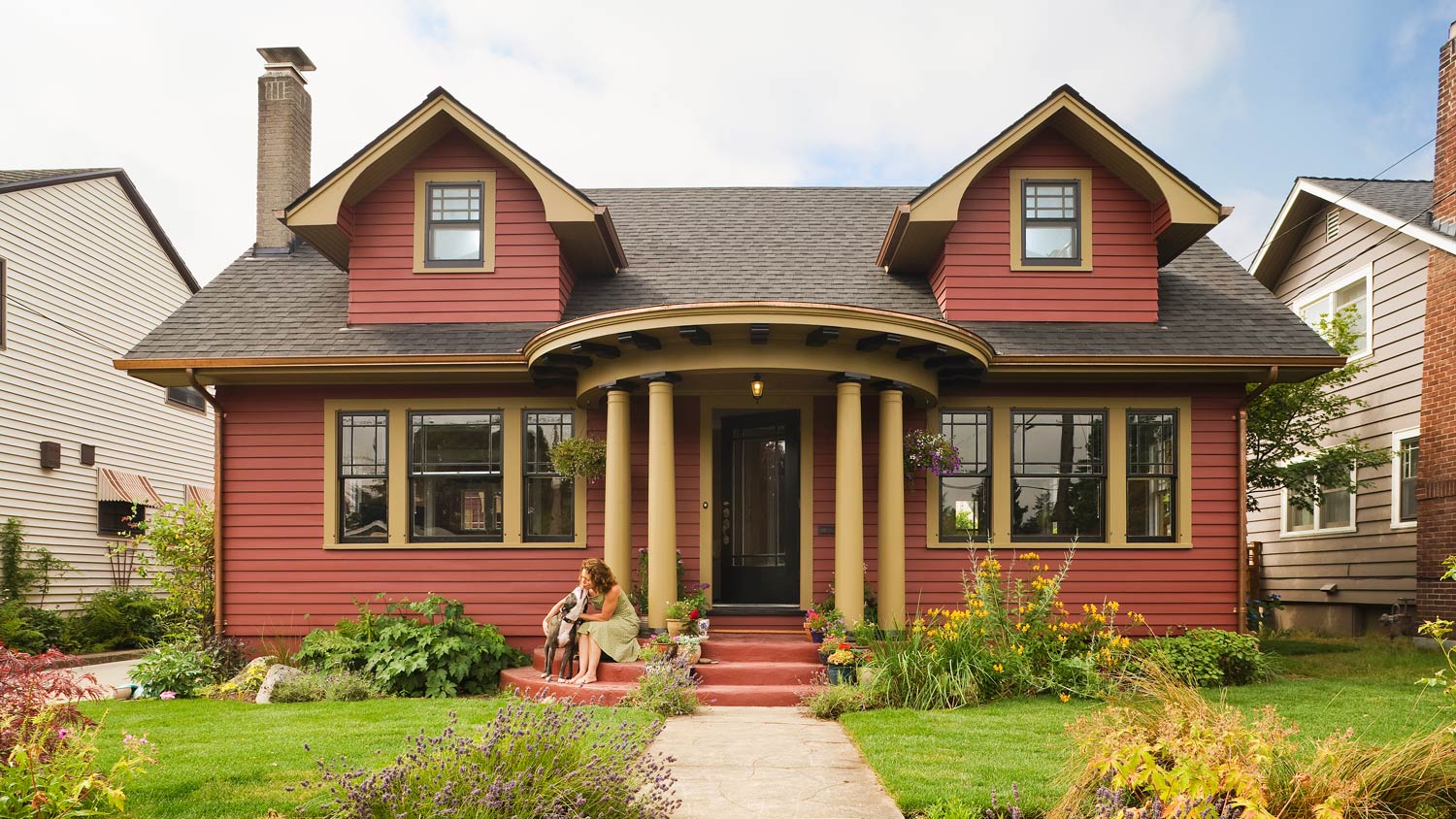Your Guide to Common Masonry Materials
These ten common masonry materials have a place in every household


There are many masonry materials for your home projects
Brick and concrete are good choices for exterior projects
Stone veneer is a more cost-effective option for natural stone
From brick to concrete, there are plenty of different masonry materials that find their way into our homes. It doesn’t matter if your home was built hundreds of years ago or if it was just finished up last week. Here are ten common masonry materials you’re likely to find in any home, along with info about how they’re used.
1. Brick

Brick has been a staple building material for centuries. And there’s a good reason the big bad wolf couldn’t blow down the house made of brick: Under ideal conditions, bricks can last upward of 500 years. A brick and stone exterior is widely considered one of the most hassle-free material combos out there.
Brick is also commonly used for fireplaces and chimneys. So even if your house is made of concrete or wood, there’s still a chance the fiery red bricks found a way into your home.
2. Concrete and Concrete Blocks

Concrete has been shaping our humble abodes since the times of the Romans. And for good reason: It’s one of the most durable materials out there. There’s a reason why you can still find many statues, coliseums, and iconic columns around to this day, despite being several thousand years old.
In modern times, you’re still going to find cement in just about every household. Concrete serves as the foundation for the majority of new homes built in America. There’s also a good chance you’ll find it on your driveway and sidewalk.
Stamped concrete patios offer elegant looks to backyard seating areas and are relatively easy to install.
If poured concrete isn’t your style, then you might still find use in concrete as concrete blocks. You can use it to landscape your yard by using it for fire pits, steps, or flowerbeds.
3. Granite

Granite has found its niche in the masonry world as a popular countertop material. It can also withstand spills and scratches better than many materials. Granite tiles are also a popular choice for bathrooms.
4. Natural Landscape Stones

Natural stones, such as limestone and sandstone, make perfect edging and retaining walls. They add character, break up large sections of a single color, and of course, draw attention to all the hard work you’ve put into your landscaping.
5. Stone Veneer

If you’re looking for a way to integrate the look of natural stone into your home’s interior or exterior but are trying to save money, look no further than stone veneer. Stone veneer is manmade and is made to look similar to natural stone material. This material can be bought in a variety of shapes and sizes and, to an untrained eye, can look almost identical to natural stone. Stones can also be cut to create a cleaner, tighter look on your exterior.
6. Marble

Marble has found a niche spot in the form of marble tiles. You can find marble tiles for flooring, bathroom tiles, and kitchen backsplashes. You’ll also occasionally find marble used for interior decoration in the form of statues or columns.
7. Glass Blocks

Glass blocks are typically used as accents in shower walls as a complement to the rest of the tile. They may also be frosted and used as windows in the bathroom so you can enjoy both natural light and privacy.
8. Stucco

This cement-based product is a thin layer that goes over your home's existing woodwork and masonry. It can be easily painted. Unlike wood or brick, stucco can be molded and texturized. So, if you want the brick look without being stuck with deep reds and browns, you could create a faux brick look with stucco.
9. Mortar

Mortar is the material that fits nicely in between bricks and cement blocks. If you’ve ever seen the old cartoons of characters laying bricks and slapping down a dark paste before putting the brick down, that’s the mortar.
10. Grout

Grout is the final touch to patios, stone flooring, and bathroom tiles. Unlike mortar, grout tends to have a smoother finish and looks more like it flows naturally with the stones rather than holding them together. You can even dye the grout to add an extra layer of uniqueness to your designs.
11. Rebar

While rebar isn’t a stone, it is often buried (literally) in the middle of concrete projects, making it a common masonry material. These steel bars are used throughout masonry projects to help reinforce concrete so it holds up in high-traffic areas such as driveways, patios, and foundations.
Tips for Hiring a Masonry Contractor
With so many different types of masonry materials, knowing who to call for a specific job can be confusing. For most projects, your local masonry contractor should be able to complete the job. However, if you’re looking for a more specialized pro for your job—for example, building a concrete patio or driveway—you might opt instead for a local concrete mason for that job.
Beyond the mason’s experience and expertise, it’s also a good idea to learn about pricing from not just one but multiple pros. This might tie directly into a mason’s expertise—someone who has experience with one type of material might charge differently from a mason who has the know-how of many. Asking the right masonry questions will help you choose the right contractor for your job.
While price shopping and checking references, don’t forget to ask for before-and-after photos of the professional’s work for the type of project you’re looking for. For example, if you’re looking to add brick siding to your home, request to see what the previous home looked like before and what the brick looked like at installation to ensure the pro can do exactly what you’re looking for.
Frequently Asked Questions
Mortar, or masonry mortar, is mainly used in joints and as parging for stone, brick, or cement construction. Stucco is primarily a surface material used as wall coverings. For maintenance, masonry will need repointing or replacing as damage or land shifting occurs, whereas stucco will need patching or refinishing as it tends to crack over time along with other types of wear-and-tear.
Unless you’ve worked in the masonry industry before, it is in your best interest if you hire a pro for any masonry needs. Masonry-related jobs require a high skill level and can be extremely time-consuming. If anything goes wrong, a licensed and insured masonry contractor would be able to take care of the subsequent repairs, giving you additional peace of mind.




- 8 Tips for Mixing Brick and Stone Exteriors for a Cohesive Look
- Masonry vs. Concrete: What’s the Difference?
- Historic Brick Masonry Restoration Guide
- Building Blocks: The Pros and Cons of a Brick House
- Concrete Blocks vs. Bricks: A Guide
- Pros and Cons of Painting Exterior Brick
- What is Masonry? Definition, Contractor Credentials, and More
- Unlocking the Advantages of Concrete: Why It’s the Ultimate Building Material
- Can You Add Windows to a Brick House? What to Know and Who to Call
- 7 Low-Maintenance Siding Options for Your Home











